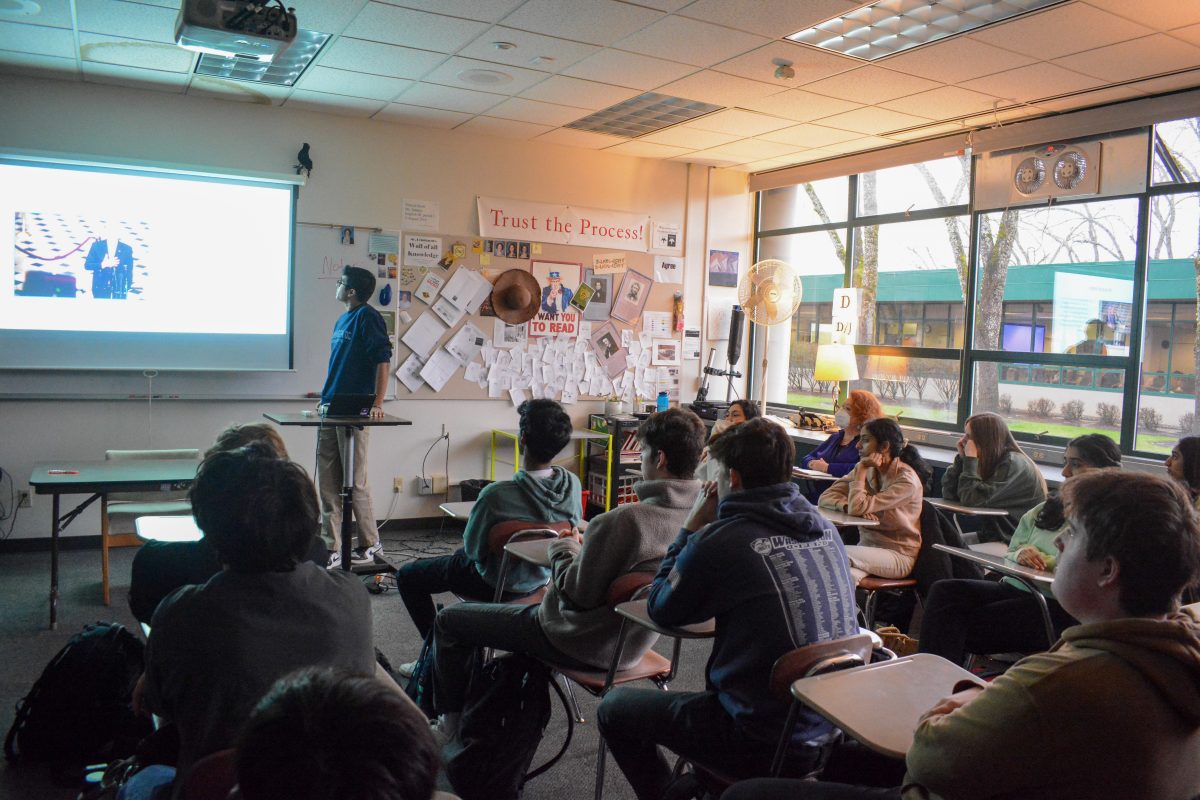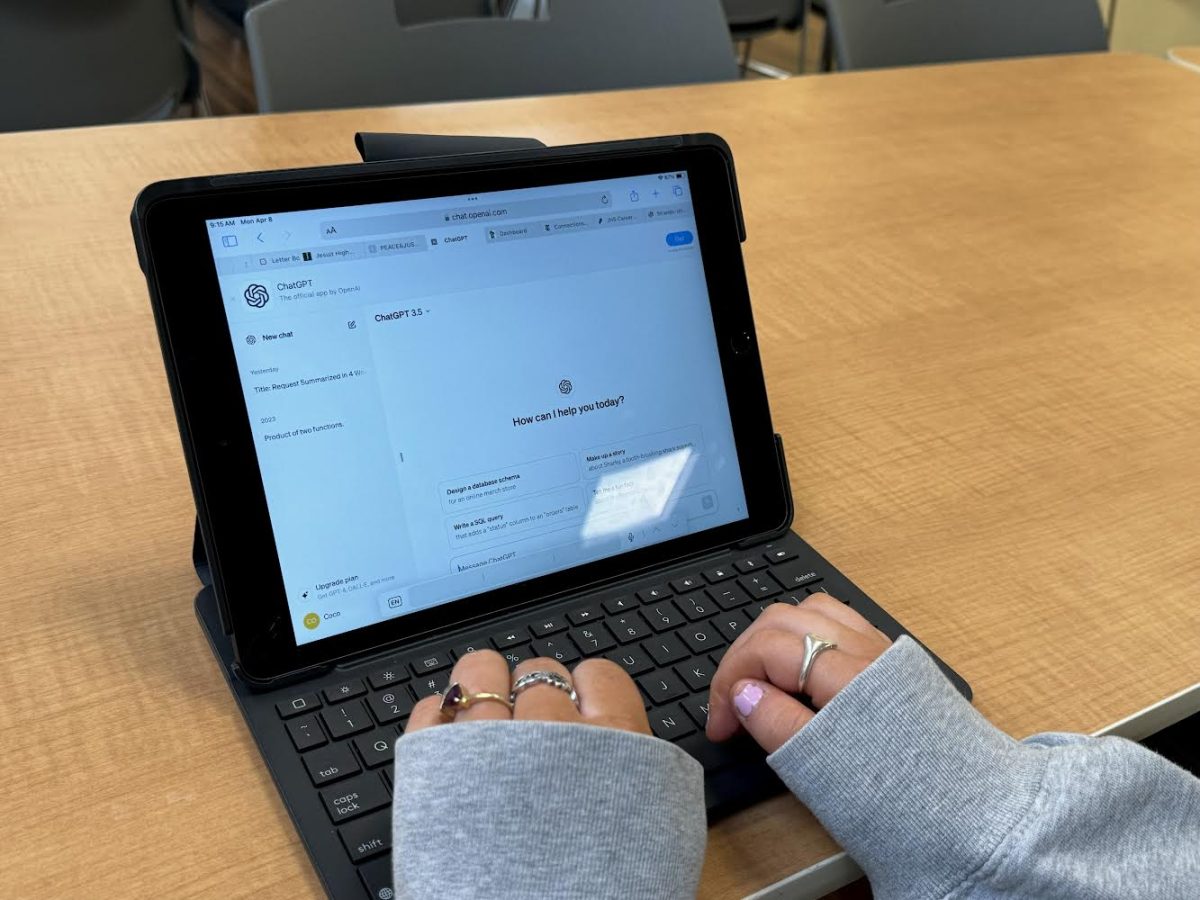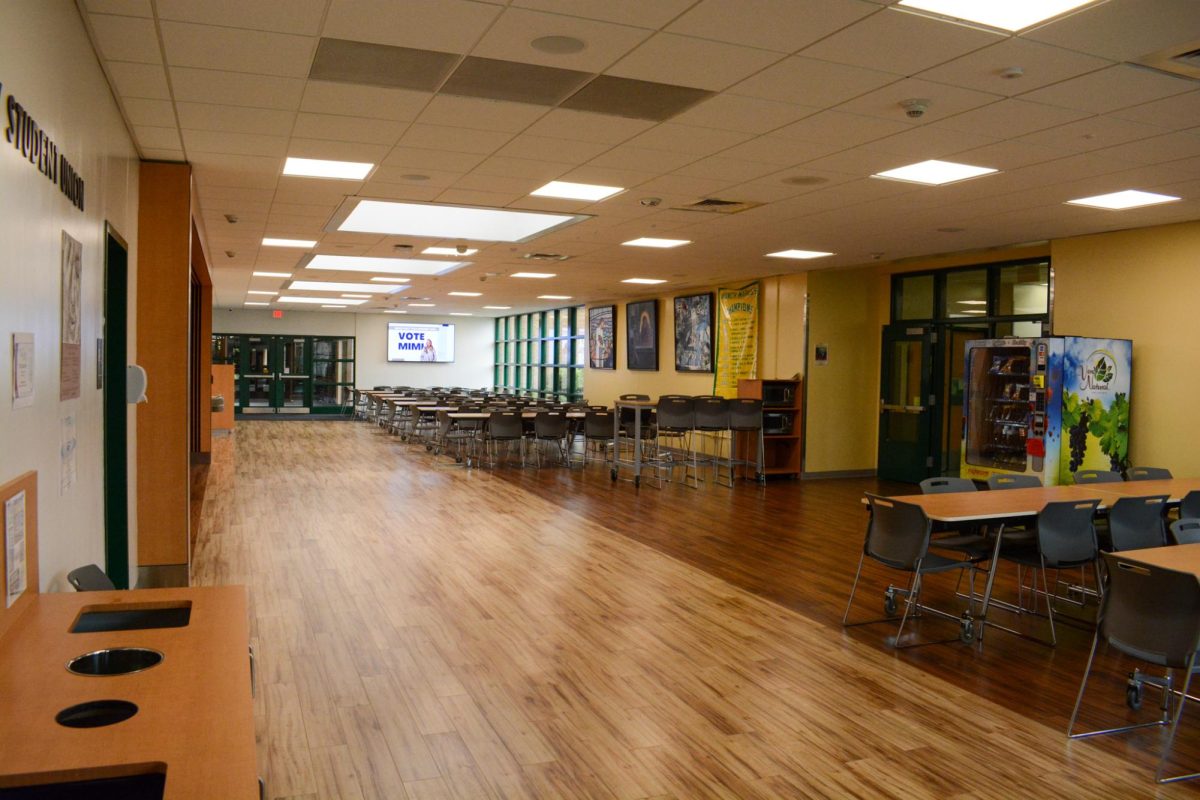After winter break, finals have been all the talk at Jesuit. With the new schedule, and different teacher preferences, many students have been assigned to complete projects rather than exams.
By teachers utilízing the new finals schedule well and assigning projects, it benefits the workload of students.
Instead of having to study many topics from the whole semester and memorize temporary facts for one exam, students have more time to be prepared for their project and know what to expect rather than having an exam on the horizon.
Junior Addy Azavedo is enrolled in AP Calculus, AP English Language and Chemistry Honors. She also balances club volleyball and other extracurricular activities. She shared with me how final projects are extremely beneficial to her with her busy schedule.
“Having final projects and having the whole week to work on it in my opinion, shows a better understanding of the curriculum rather than one big test. It relieves a lot of stress having a whole week to work on a final rather than the anxiety of studying for one exam per subject.”
Personally, having many other commitments outside of school with sports and extracurriculars, final projects are tremendously beneficial
After winter break, the teachers that have assigned projects have given my class more than enough time outside of class and even in class time to get our final project done. It is very easy to follow the directions of a project because you have direct instructions to what you need to do and get done.
On the other hand, having an exam often involves teachers only giving students a general idea of what needs to be memorized and not having the direct things to memorize can stress students out.
In an article by the National Library of Medicine, the author states, “Exams carry pedagogical downsides: they can create stress, decrease intrinsic motivation and tend to reduce opportunities of creative problem solving” (Branco).
As well as having exams but more specifically having timed exams, they add a increased amount of pressure to students. Timed exams that many students take have downsides such as, making small mistakes while under pressure. New evidence was shown that although smarter people are faster at solving easy problems, they’re actually much slower at finish difficult ones. They’re well aware that haste makes waste, and they don’t want to sacrifice accuracy for speed. (New York Times).
In an article written by the New York Times, the author states, “Strangely, though, the tests that define students’ grades and help determine their educational and professional fates are rarely designed for deliberation” (Doyne).
Why does one test have to determine my overall grade?
Timed tests underestimate the capabilities of countless students (New York TImes). These tests just increase the pressure and amount of time students have to spend focusing on these difficult semester exams.
Even though we will have timed exams in college, it does not mean that all of them will be timed.
In college, the finals are dependent on the professor and you may not have a final in every class. College finals also can be spread over multiple days at multiple different times (We are IU).
However, students at Jesuit have to prepare for a possible two ninety minute tests per day during one week. Having at least 3 or even more possible timed exams in core classes create stress and unneeded pressure for the students to succeed.
Teachers should pursue the use of student or group based projects to increase the creativity of the young minds that are all around us today.
Opinions expressed in this article are solely those of the individual writer and do not necessarily reflect those of Jesuit Media, The Jesuit Chronicle, or Jesuit High School.
SOURCING:
https://weareiu.com/academics/study-tips/finals-in-college-vs-finals-in-high-school/










